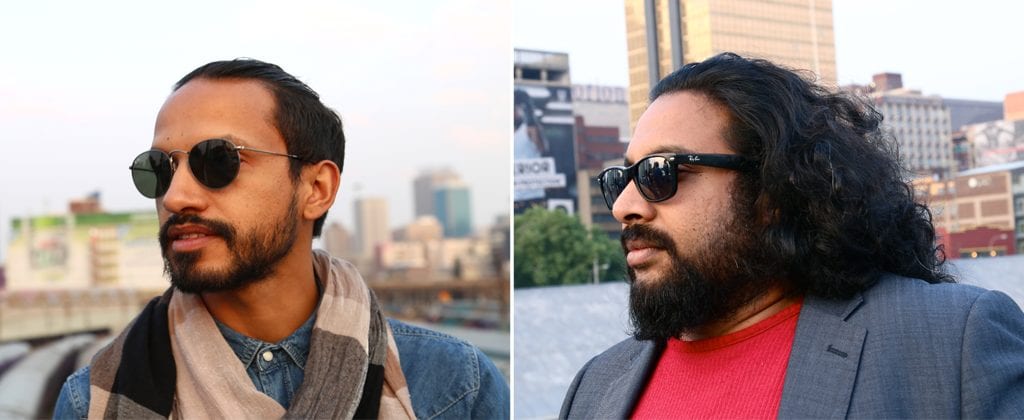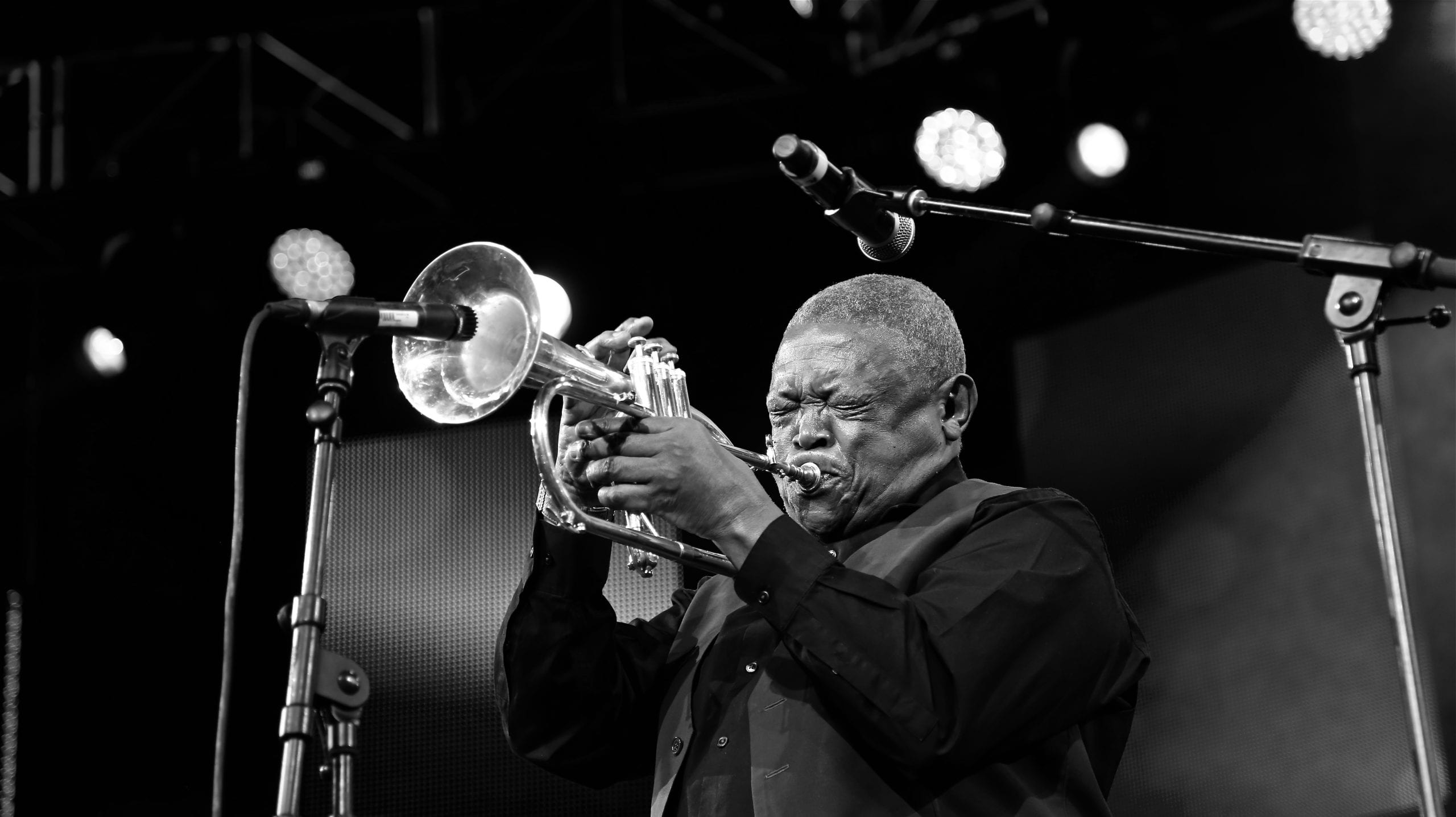Kyle Shepherd, Kesivan Naidoo and the future of South African jazz

This year marks the 20th anniversary of South African democracy. It’s more than just a numerical milestone: That is roughly the amount of time it takes for a new generation to grow up, spread its wings and begin to create something original from its own perspective. The history of jazz in South Africa is directly tied to struggle and resistance, even more than in the United States. Now, a couple decades after the fall of the brutal apartheid government, the music’s identity is at a fascinating point of transition.
I recently spent a month in South Africa reporting on the jazz scene for JazzTimes, and I was struck by the togetherness and exuberant positivity of the young musicians–they still understand the music as expressing a social ideal, but instead of facing off against the evils of a racist regime they see jazz as important because it helps us imagine new possibilities and new types of freedom, beyond the tangible political kind.
The drummer Kesivan Naidoo, 34, and the pianist Kyle Shepherd, 27, are two of the country’s brightest rising stars, and have already made significant contributions to the future of South African music. Both are winners of the Standard Bank Young Artist Award for Jazz—equivalent in terms of prestige to earning first prize in the Monk competition here. They’re in the United States this month after playing at Carnegie Hall for the Ubuntu Festival, where Naidoo’s band, Kesivan & the Lights, was a headliner. They will play only one gig in D.C. this trip: at Bohemian Caverns on Thursday. They’ll be joined in a trio by Tarus Mateen, the D.C. bass master, someone whose records with Jason Moran they both grew up studying.
Click to share this via Facebook or retweet via Twitter, and you’ll be automatically entered to win a pair of tickets!
Here’s the icing: Bohemian is offering one lucky CapitalBop reader a pair of free tickets. All you have to do to win is share our Facebook announcement (here) or retweet our on Twitter announcement (here), and you’ll be automatically entered to win.
Naidoo is a straight-ahead drummer with a powerhouse pulse, and an ear for abstraction and rhythmic tension. His new release, Brotherhood, features the living South African jazz legend Feya Faku on trumpet (and Shepherd on piano), and it showcases a handful of modern jazz originals with sharp harmonies, singable melodies and driving rhythm. Shepherd’s latest, Dream State, puts the rolling melodic feel of Cape jazz (a famous genre indigenous to his hometown) in touch with contemporary jazz. Whether he’s using a hip-hop beat or a blistering, seven-beat cycle, Shepherd keeps the Cape’s major chords and subtle subversion in his playing at all times.
Both musicians came under the wing of the late saxophonist Zim Zgqawana, the most important figure in early 21st century South African jazz, and both are carrying his legacy forward. While I was in South Africa, I sat down for separate interviews with Shepherd and Naidoo. In the transcript below, they discuss Nqawana’s influence, and Shepherd goes into detail about his own background and musical aspirations.
CapitalBop:Talk about your experience learning from Zim Ngqawana.
Kyle Shepherd: I saw a concert of his in Grahamstown. I was actually still playing classical music, I wasn’t even playing jazz. I was around 15…. That’s when I really knew that I somehow wanted to be involved in this music. The players just looked like they were so deeply invested in the music. And the music was so deep. I hadn’t gotten that from classical music, over 10 years. That was a defining moment.
Then I met him some years later again, and he said, “Come to Johannesburg whenever you’re ready.” At that point I was at UCT [University of Cape Town] for about a year and a half out of a four-year degree. I said, ‘I gotta go.’ Packed my bags, came to Johannesburg, and spent a few months with him. We did a lot of speaking, actually, not so much playing. And we spoke about ideas that we both had—his ideas, my ideas. And I decided on a lot of things in that period….
Kesivan Naidoo: I actually had a long journey with him. From the beginning, when we started playing, it was about, Okay you’ve learned all this stuff at the university—now you’re going to unlearn it…. Our first gig at the Bassline [in Johannesburg], he introduced me to the audience: ‘This is my new drummer, we’re going to start with a drum solo…. And in the process of this solo you’ll hear the process of moving from a learned state, with all he’s gotten from the university, to unlearning.’ …
Every Saturday I would meet him every sat at the Bassline and we would just go some place and play. Sometimes it would be a big festival, sometimes it would just be at home….
Zim was responsible for me being confident in being a freer jazz musician. Bheki [Mseleku] taught me a whole bunch of other stuff—a sophistication and the deep African groove that we have here in our playing, and how to integrate that into the music. But Zim definitely gave me that [sense of freedom].
CB: Kyle, as a result of those conversations, what directions did you decide to follow?
KS: When I was at the university, they take you through the whole thing, from Jelly Roll Morton [through post-bop]. When I think of my own music, I don’t really feel completely comfortable in the bebop thing. I don’t feel like I can really express myself in that mode. I feel a lot closer to the third-stream guys, like Jason [Moran]. The university was force-feeding us. In fact, I was so heavily into Jason back then, I wanted to discuss it with my piano teacher, but he was just completely not interested…. I was listening to the Bandwagon live at the Vanguard. I listened to that…. That’s when I knew, okay, this place is not for me.
CB: You’ve explored a lot of traditional Khoisan music, and other historical forms from Cape Town. I guess he had something to do with encouraging that.
KS: People who do that are made to feel inferior. Like it’s just tribal stuff. But a lot of the time those people who criticize myself and others who do that have never stepped out of this country and seen. When I go around the world and I’m playing on the same stages as some of the best names in music, I have to think, “What’s in my sound that’s different from their sound?” That’s not the reason why I do some of the things I’ve done, but it’s affirmed it: like, it’s actually okay to do that.
CB: What were you trying to achieve with Dream State?
KS: I think my previous work, I was really focused, as I said, on this roots music. I was studying that music, and again it was also a political statement in a way for me to play that music. Because as I said, at the university, they said, “Don’t play that music.” At the jam session you play American music…. [So] the first two albums are quite traditional South African jazz… I feel this album is more to where I want to go: an assimilation of more elements…. This album points more to that.



